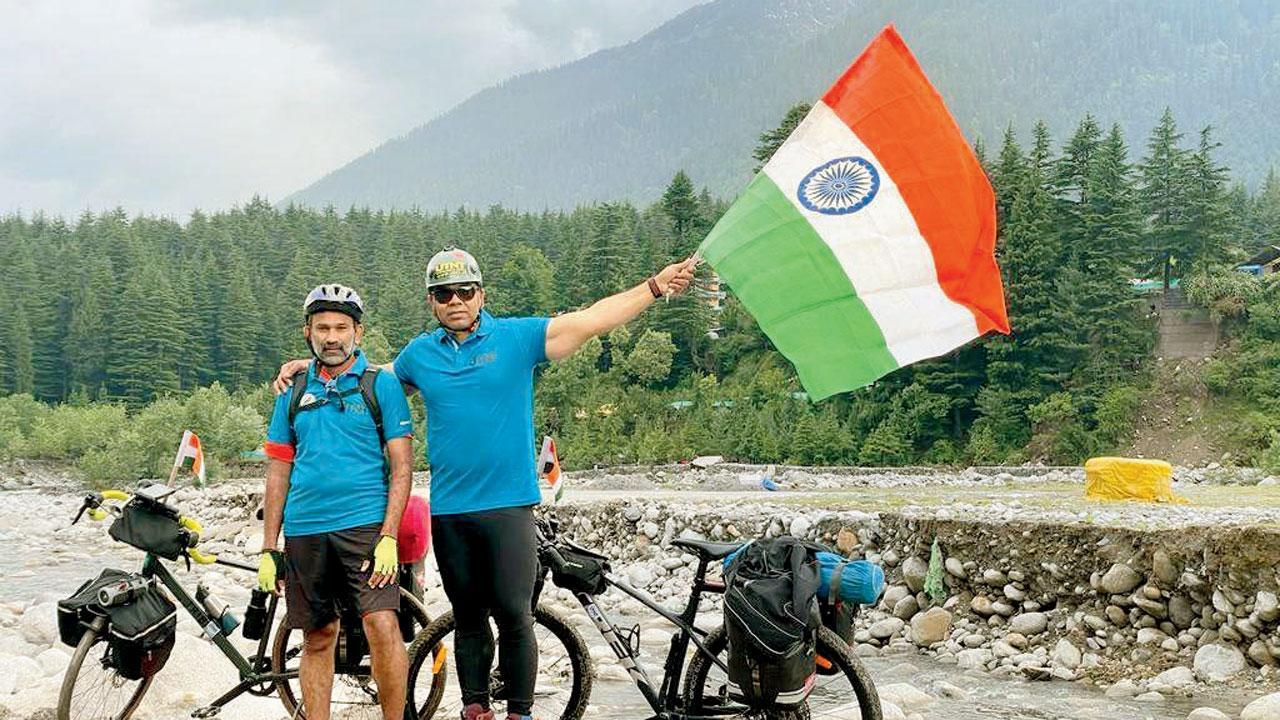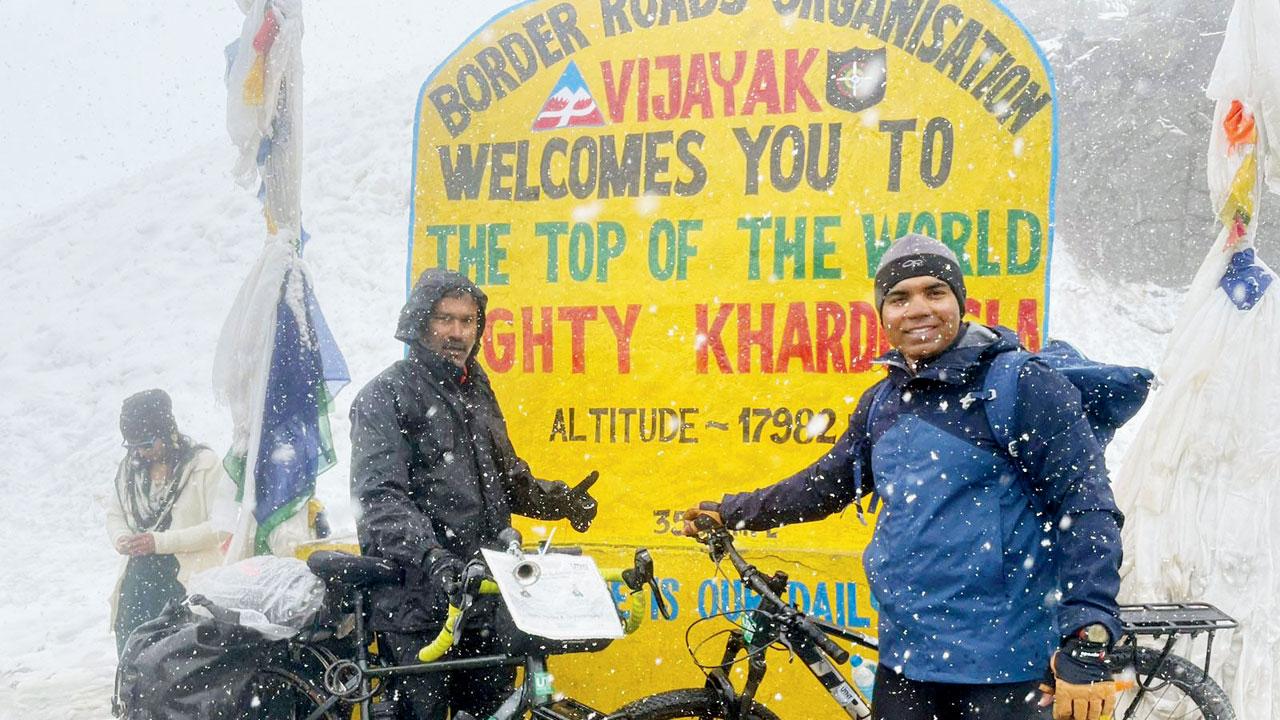Academics interact with locals, promote cycling via ‘Climate Awareness Ride’

Professor Raaj Ramsankaran and Mohd. Farooq Azam waving the Indian flag
In an effort to bring attention to the critical issue of climate change, two esteemed academics from the renowned Indian Institute of Technology (IIT) Bombay and Indore teamed up for a unique initiative. Professors RAAJ Ramsankaran, 42, and Mohd. Farooq Azam, 39, embarked on a challenging cycle expedition, known as the ‘Climate Awareness Ride’, to raise awareness about climate change and its impact on the Himalayan cryosphere and humanity.
Starting from Manali on June 17, the duo completed their 12-day journey at Siachen Base Camp (SBC) on July 1, covering a distance of 675 km. This expedition took them through five mountain passes exceeding 4,000 Metres Above Sea Level (MASL), including the renowned “Khardung La”, the world's second-highest motorable pass.
Before commencing their cycling expedition, the professors delivered a talk at IIT Ropar in Punjab to create awareness about climate change and its implications. The expedition aimed to encourage individuals to adopt climate change mitigation measures in their daily lives. Unite Trades & Technologies (UTNT) from Gurugram-Haryana sponsored their expedition.
 IIT professors at Khardung La, the world’s second-highest motorable
IIT professors at Khardung La, the world’s second-highest motorable
Highlighting the urgent need for climate-resilient infrastructure, Prof. Ramsankaran emphasised the destructive impact of extreme weather events resulting from global warming and climate change. He stressed on the importance of changing our ways to mitigate these events.
Throughout their challenging journey, battling extreme weather conditions like snow, rain, and dust storms, the professors interacted with local farmers in five different villages. They sought to understand the impact of changing snow and rainfall patterns on their lives, the local solutions they adopted, and their expectations from the government.
Speaking about their expedition, Prof. Azam emphasised two key objectives: understanding the problems faced by locals and designing future research based on their feedback and promoting cycling among citizens as a sustainable mode of transport for shorter distances.
Sharing their experience during their expedition Prof. Ramsankaran said, “This route was selected because we both work on the glaciers in this region and thought it would be apt. We undertook a 12-day expedition from Manali-Leh-Khardung La Pass to Siachen Base Camp (SBC). Overall, the journey was great. We were welcomed by snowfall at Khardung La, the world’s second-highest motorable pass when we reached there. In Nubra valley, while going from Khalsar to Sasoma, we faced strong dust storms and headwinds during the evening time. It was a challenging ride.”
The professors highlighted black carbon as a significant contributor to the melting of Himalayan glaciers, advocating for public support in reducing black carbon emissions by adopting cycling. They shared their experiences with tourists, promoting responsible tourism and encouraging the preservation of the environment.
During their expedition, the professors met with Sonam Wangchuk, an engineer, innovator, and education reformist in Leh, Ladakh. They discussed water management and tourism-related issues, aiming to inspire individuals to make lifestyle changes that reduce carbon emissions.
The ghost of plastic pollution
During their expedition, Professors Ramsankaran and Azam encountered the Gata Loops on the Manali-Leh highway. Ramsankaran described the shocking sight of plastic bottles, energy drinks, snacks, and cigarettes strewn outside a small roadside shrine believed to appease the spirit of a truck driver's deceased helper. He criticised the pollution caused by such superstitious practices.
To disprove the belief, Ramsankaran humorously admitted to taking a packet of peanuts and energy drinks from the shrine. This highlights the need for responsible waste management. He also highlights that anyone can make an offer for water but should avoid using plastic bottles to do so.
12
No of days professors cycled
 Subscribe today by clicking the link and stay updated with the latest news!" Click here!
Subscribe today by clicking the link and stay updated with the latest news!" Click here!










